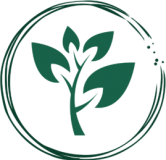Over the years, I have been frequently asked what sustainable agriculture is and why it’s important. And last month Jose, a prospective client, asked me whether or not Alternative Ag Investors offers investments that employ sustainable farming practices.
The answer to the second question is an unqualified yes, but let me begin by going back to the initial question: What is sustainable agriculture?
In the United States, “sustainable agriculture” is an actual legal term as defined by U.S. Code Title 7, Section 3103. According to the National Sustainable Agriculture Coalition (NSAC), it means an integrated system of plant and animal production practices having a site-specific application that will over the long term:
- Satisfy human food and fiber needs.
- Enhance environmental quality and the natural resource base upon which the agricultural economy depends.
- Make the most efficient use of nonrenewable resources and on-farm resources and integrate, where appropriate, natural biological cycles and controls.
- Sustain the economic viability of farm operations.
- Enhance the quality of life for farmers and society as a whole.
As you can see, the definition is fairly broad. If you’re interested, the U.S. Department of Agriculture website goes into much more extensive detail but the NSAC definition is a good starting point. The principles outlined above should be applied in all sustainable farming operations regardless of the crop, location or conditions.
The first principle is pretty obvious; farming should be focused on providing for the most basic human needs such as food, clothing and shelter. All the agribusiness options offered by Alternative Ag Investors (AAI) are focused on providing either food or timber.
Enhancing Environmental Quality
Improving environmental quality and the natural resource base would also seem to be obvious, but farmers across the world employ dangerous chemicals and engage in other practices that actually degrade the soil and pollute the water.
On a recent trip to Hawaii, I learned that 95% of the island of Lanai was once owned by Dole PLC and grew pineapples… until the soil became so depleted that it was no longer economically viable.
Millions of acres in China can no longer be used to grow food because the land has been poisoned through the excessive use of chemical fertilizers and pesticides. By contrast, the company I represent that grows Rainforest Limes uses biofertilizers made from neem leaves and fruit to naturally control pests.
The teak plantation offer on my website represents a renewable resource that contributes to carbon sequestration for 25 years until the trees are harvested and then the process starts all over again. Reforestation vs. deforestation.
Efficient Resource Use
In recent decades water has come to be classified as a nonrenewable resource. This is somewhat controversial because, after all, water doesn’t just disappear as it’s used. The problem is that between 70% and 90% of water is used for crop irrigation, leaving less for human consumption, and we don’t have enough water where it is needed (mostly in urban areas).
In China, over 28,000 rivers have simply ceased to exist over the last half-century primarily because of over-allocation. We can’t just stop irrigating so it is critical that water be conserved and used wisely. All of the AAI companies either use natural rainfall to water the crops or advanced drip irrigation systems that apply a fraction of the water used by other means. In the case of the strawberry greenhouse and dragon fruit greenhouse operations, the water is recycled.
Economic Viability
Always with an eye on the future, stewardship is a key component of any sustainable farm. Remember, we will have close to 10 billion people on this planet by 2050 and crop production must increase by 70% in order to meet the demand. We must take care of the land we grow on and the nonrenewable resources used.
This is just one of the reasons farming must be sustainable. Permaculture (tree crops) and greenhouses lend themselves well to sustainable farming. Controlled environment agriculture, which includes greenhouses and vertical farming, is the future of sustainable farming because it allows for the relatively easy application of new technologies.
Quality of Life
Finally, sustainability includes a social responsibility component. While all of the companies I represent have shown a strong commitment to their employees and paying a living wage, I am especially proud of the company that grows specialty coffee and cacao.
As a critical part of their business model, AgroNosotros includes vastly improved living conditions for the workers and their families. Medical and pension benefits, schooling and basics that we take for granted like electricity, running water, flushing toilets, showers, gas stoves, and real beds are provided. For the first time in their family’s history, they see a path to upward mobility.
Add to that the fact that the company relies on predominantly natural means to mitigate environmental risks, and you have an investment model that you can be proud to own.
Be A Part of The Solution
When it comes to deciding what to do with your investment dollars, you can be a part of the problem or part of the solution. Sustainable agriculture is no longer an option, it’s critical to secure our very future.
Owning farmland that puts food in people’s mouths while preserving the land and other precious resources is being a part of the solution.
Contact me today at Alternative Ag Investors to explore all of the sustainable farming options that can enhance your portfolio while saving the planet.


